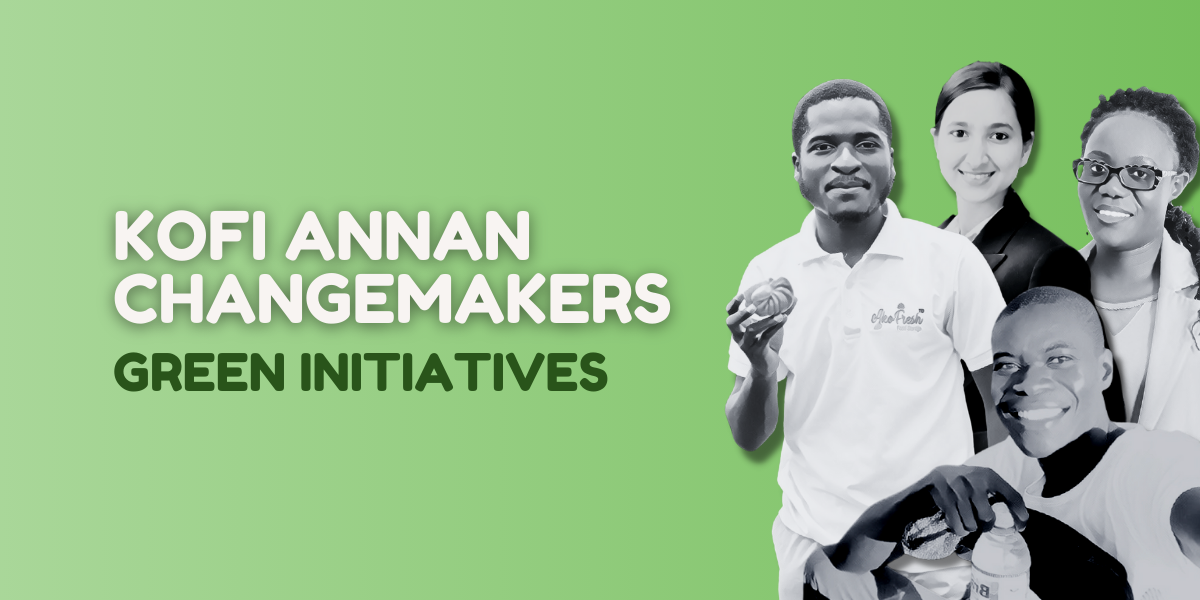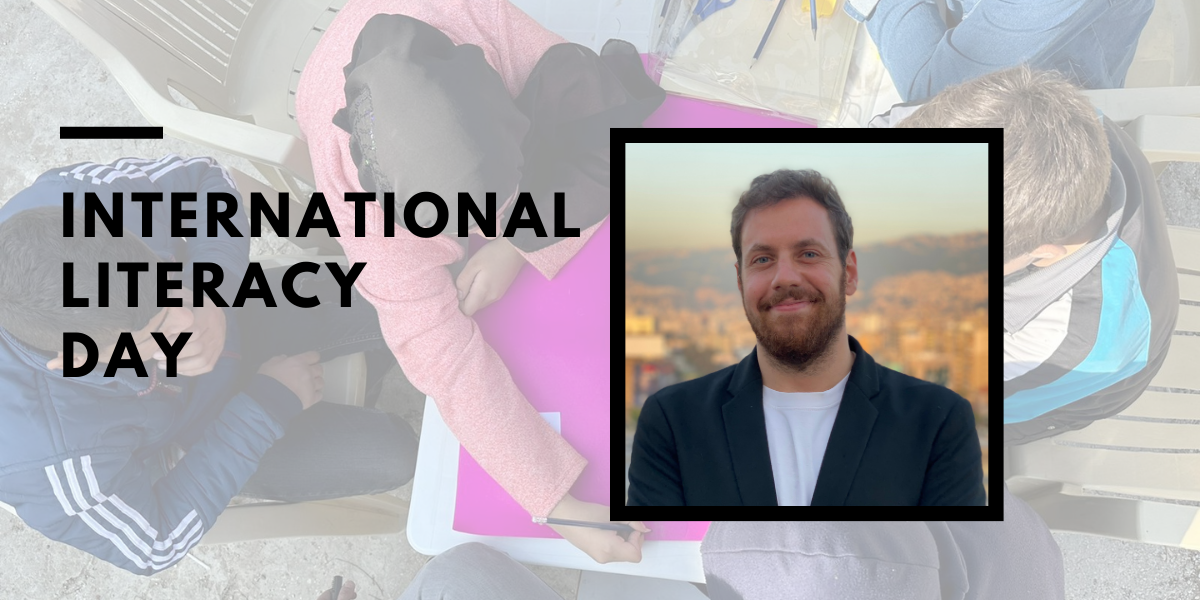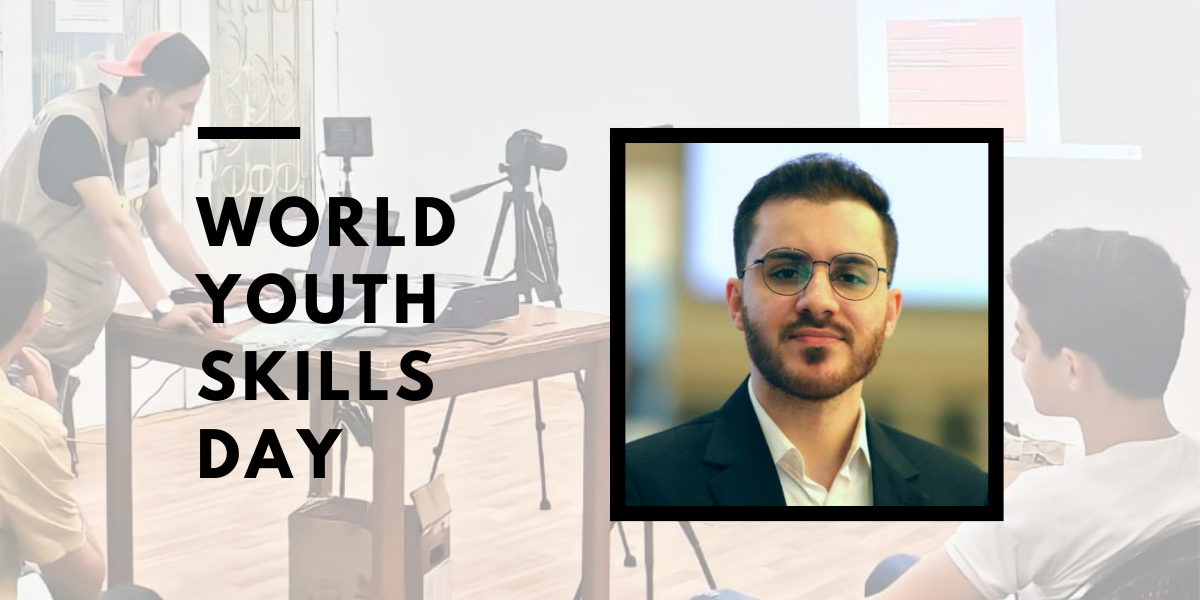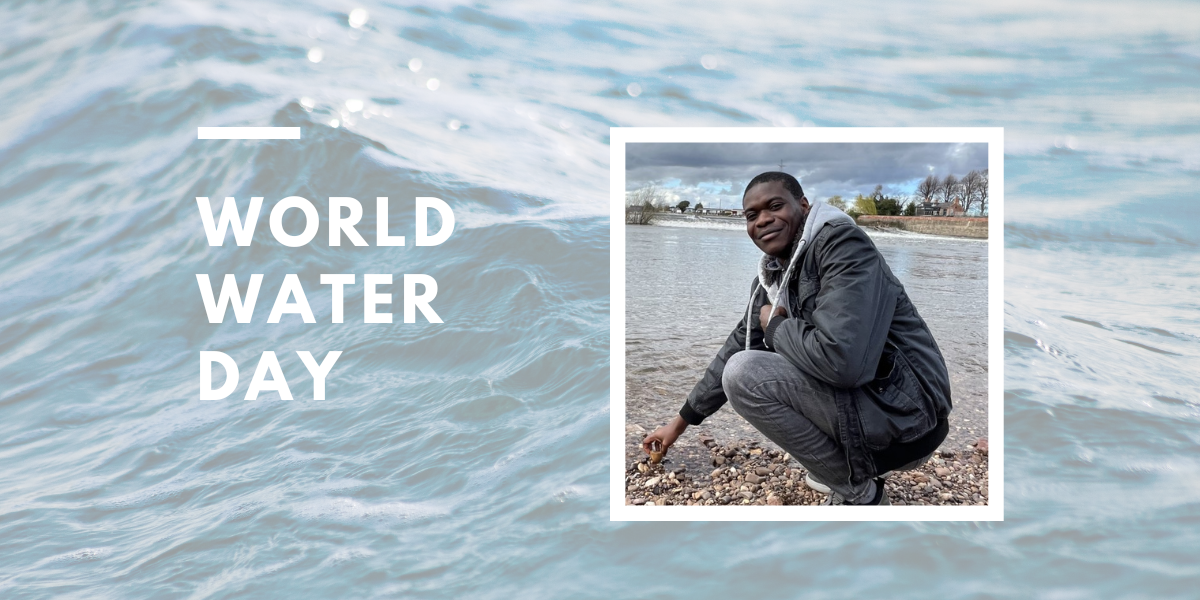How one young Kyrgyz is creating a brighter future for the next generation
“Education is a human right with immense power to transform. On its foundation rest the cornerstones of freedom, democracy, and sustainable human development.” – Kofi Annan
![]() In honour of International Day of Education 2023, we speak with Manata Alexandr, a Kofi Annan Changemaker and youth advocate aiming to create a more equitable and inclusive society for young people. Manata strives to transform her homeplace of Kyrgyzstan into a place where young people want to stay and build their future.
In honour of International Day of Education 2023, we speak with Manata Alexandr, a Kofi Annan Changemaker and youth advocate aiming to create a more equitable and inclusive society for young people. Manata strives to transform her homeplace of Kyrgyzstan into a place where young people want to stay and build their future.
Through her numerous projects, including improving literacy and providing vocational training, the 26-year-old pushes to create ample job opportunities, foster diversity and innovation, and increase investment in the next generation.
Read on to discover more about Manata’s work, her passions and why we all need to make education a priority.
Kofi Annan Foundation (KAF): Hi, Manata thanks for talking to us today! Tell us, what drove you to work in supporting youth?
Manata Alexandr (MA): I am deeply committed to working in youth support because of my experiences with discrimination based on my age and gender.
Despite the prevalence of programs and organizations addressing gender discrimination, I found limited resources and support addressing age discrimination. As a result, I was excluded from decision-making processes and missed numerous opportunities. This personal experience has motivated me to take a proactive stance in advocating for the rights and empowerment of young people.
I firmly believe that every young person has the right to be heard, to have access to support and to take advantage of opportunities that will enable them to reach their full potential without facing discrimination and barriers.
KAF: You empower young people and prepare them for a rapidly changing world. How do you do that, and why is that so important for you, particularly in Kyrgyzstan?
MA: We believe that by genuinely listening to what young people want and need, we can create programs and opportunities that are tailored to their specific needs.
One of the critical ways we empower young people is by providing them with vocational training and apprenticeships to develop specific skills. This not only equips them with the tools they need to succeed in the workforce, but it also helps to create a more vibrant and dynamic economy. Additionally, we provide opportunities for leadership and civic engagement, such as programs that teach about democracy, human rights, and good governance, and we give young people the opportunity to participate in decision-making processes at the community level.
“By investing in the education and development of young people, we can create a more prosperous and stable society for Kyrgyzstan.”
Creating an environment that is inclusive and supportive of young people is also essential. This includes addressing poverty, discrimination, and access to healthcare and other basic services. By investing in the education and development of young people, we can create a more prosperous and stable society for Kyrgyzstan. We are already taking steps to make this happen, and we will continue to support the young generation to create a bright future for Kyrgyzstan.
KAF: Can you tell us more about the challenges you face in Kyrgyzstan?
MA: In Kyrgyzstan, as in many developing nations, the education system is facing many significant challenges: starting with the populism of the state and the indifference of the population itself. Recently, I have been talking to one of my colleagues, and we came up with the idea that one of the main concerns is the lack of emphasis on sustainable development in schools, with teachers primarily focusing on imparting theoretical knowledge and not providing opportunities for practical application. Additionally, schools often do not prioritize the development of soft skills, which are essential in today’s rapidly changing world. From my professional experience, many students cannot effectively communicate their opinions, handle conflict, and accept constructive criticism.
However, it is important to note that our civil society organizations actively work to bridge these gaps. Organizations such as the NAMA Foundation, which I have been working with for a long time, conduct training for teachers on how to create positive learning environments and emphasize the emotional well-being of both teachers and students. Additionally, organizations like Techaim, which I have had the pleasure of working with, focus on providing STEM education for schoolgirls in remote regions of Kyrgyzstan, where such programs are not easily accessible. These organizations are making significant strides in improving the education system in Kyrgyzstan and creating a better future for our young generation.
Photo: Techaim
KAF: You say your ultimate goal is to reduce brain drain; what does this mean precisely?
(MA): Reducing the brain drain in Kyrgyzstan is a crucial goal that requires a multifaceted approach. Brain drain is not just losing a few highly skilled individuals to other countries. It is about the long-term ramifications it could have on my home country’s future. When talented people leave, there will be less investment in the local economy, fewer job opportunities for the next generation, and a loss of diversity and innovation.
To combat this, we must create a Kyrgyzstan that is just as desirable as any developed country. This means working towards a strong economy with ample job opportunities, fostering diversity and innovation, and investing in the next generation. By creating a place where young people want to stay and build their future, we can keep our talented and ambitious individuals in Kyrgyzstan. And in turn, this will help build a brighter future for our country.
“It’s also important to promote the value of education and training, so that young people can acquire the necessary skills to compete in the global market.”
It is not just about creating job opportunities; it’s also essential to create an environment conducive to growth and development. That’s why I am passionate about working with young people and creating programs that will help them to build their skills and gain experience. This will not only help to reduce the brain drain but also create a new generation of leaders and entrepreneurs who will drive the country’s development.
Additionally, it’s also essential to promote the value of education and training so that young people can acquire the necessary skills to compete in the global market. By providing opportunities for education and training, we can help young people to gain the skills they need to succeed and help them to see the value of staying in Kyrgyzstan.
KAF: One of your projects focuses on improving literacy among high school students. Why is this important?
MA: Improving literacy among high school students is vital for several reasons, one of the most important being that it lays a strong foundation for future success. Students with strong literacy skills are more likely to perform well academically and have more opportunities available to them in the future.
Another important aspect is that literacy is a fundamental aspect of economic development. In a world becoming increasingly interconnected and globalized, the ability to read and write is essential for participating in the workforce and making a meaningful contribution to the economy. A literate population is more productive, and a country must have a skilled workforce to stay competitive in the global market.
“…the ability to read and write is essential for participating in the workforce and making a meaningful contribution to the economy.”
Furthermore, literacy is closely linked to personal and social development. It allows individuals to access information and knowledge, aiding in making informed decisions and leading to a more fulfilling life. Improving literacy among high school students can help them better understand and engage with the world around them and foster critical thinking, creativity and problem-solving skills.
“A literate population is more likely to be actively engaged citizens, who can participate in the political process and hold their government accountable.”
Lastly, literacy is also an important tool for civic engagement and democratic participation. A literate population is likelier to be actively engaged citizens who can participate in the political process and hold their government accountable.
KAF: Why is universal education important?
MA: Universal education is extremely important to me for several reasons. First and foremost, it is a fundamental human right that should be available to everyone, regardless of their background or circumstances. As someone who has seen firsthand the impact of a lack of education, I understand how it can limit opportunities and perpetuate cycles of poverty and inequality.
Personally, education has been a powerful tool for me to reach my full potential, and I believe that it can do the same for others. Education empowers individuals to make informed decisions and contribute to society in meaningful ways. Through education, people can develop the knowledge, skills and mindset to be active citizens and shape their and society’s future.
“As someone who has seen firsthand the impact of lack of education, I understand how it can limit opportunities and perpetuate cycles of poverty and inequality.”
Furthermore, education is also a key driver for sustainable development as it provides individuals with the skills and knowledge necessary to address societal challenges such as poverty, discrimination and gender equality. This is why I am passionate about promoting universal education and providing equal opportunities for all, as it is a powerful tool for creating a more inclusive, stable and prosperous society.
Lastly, what message would you like to share with those reading about the importance of education?
MA: As individuals, we are responsible for actively seeking out opportunities for personal and professional development through education. If we are fortunate enough to have access to quality education, it is our duty to share that knowledge and resources with those who may not have the same opportunities.
“If we are fortunate enough to have access to quality education, it is our duty to share that knowledge and resources with those who may not have the same opportunities.”
In the words of Nelson Mandela, “Education is the most powerful weapon which can be used to change the world.” I urge everyone to take action, strive for continuous learning and development, and actively work towards creating a more equitable and just society for all by sharing our knowledge and resources with those who need it. Let us make education a priority!
Education is key to sustainable development
On 3 December 2018, the UN General Assembly adopted a resolution (resolution 73/25) proclaiming 24 January as the International Day of Education in celebration of the role of education in peace and development. The right to education is enshrined in article 26 of the Universal Declaration of Human Rights and The Convention on the Rights of the Child, adopted in 1989, goes further to stipulate that countries shall make higher education accessible to all.
When it adopted the 2030 Agenda for Sustainable Development in September 2015, the international community recognized that education is essential for the success of all 17 of its goals. Sustainable Development Goal 4, in particular, aims to “ensure inclusive and equitable quality education and promote lifelong learning opportunities for all” by 2030.



